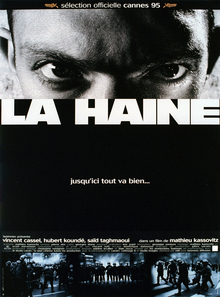Suffragette is a 2015 British Historical period drama
directed by Sarah Gavron and written by Abi Morgan. The film focuses on the
start of the suffragette movement in the late 19th to the early 20th
century and their fight for the right of women’s votes. When we went to view
the movie it as a private screening at the BFI and was shown to us before the
film was released which was an exciting opportunity, especially as after the
screening the producer carried out a Q&A with the audience which helped me
to understand about the production of films and the difficulties they
encounter.
The film itself for me was a bit of a disappointment. With
so much information circulating about the film I expected a spectacular piece
of work especially as it featured big stars such as Helena Bonham Carter and
Meryl Streep but although the story behind the film is very inspiring I felt
the narrative they followed in the film was certainly less inspiring. The film centred
around a fictional character Maud Watts played by Carey Mulligan which for a
protagonist was a disappointing thing to hear. I understand why they wanted to
base it around one specific suffragette and the title tells us this but I still
feel a fictional character was not the best choice. The other characters were
based on real life suffragettes and their lives but the protagonists was not. I
think this will prevent the audience from relating with her so much because she
didn’t exist.
Also the suffragette
movement I felt did not get enough recognition because of the utter focus of
this fictional character. The ending was also disheartening because I felt as
if the already fictional character did not get an ending although the whole
film was predominantly based around her. Mulligan’s acting nevertheless was great and
especially with the wide use of shots, particularly the close up’s to express
their emotions captured my attention.
The use of shots the idea of using real life footage is what
really made the film better. The footage was a great idea as they were able to
show the audience what really happened and what it truly looked like at the time;
the only parts of the film that made you feel like part of the movement. The (extreme)
close up’s in particular are the shots that made you feel like part of the
film. Some such as when Maud is being spoken to (often threatened) by her boss
Norman Taylor (Geoff Bell) made me feel uncomfortable because they made him
such a dislikeable character. I must admit this is the one strand of Maud’s
storyline that although still fictional seemed the most real because what
happened to her is still happening around the world today. At points in the
film they used a handheld camera sometimes it looked to be exaggerated and a
bit extreme but overall I think the use of this shot conveyed a message and
theme of fear. As it was used when the police came to arrest the women and when
Maud was running.
The scenes defiantly felt like they were based in 19th
century England. The costumes were fantastic and they managed to make London
look as if it were back in the past, so they most certainly did an amazing job
on the scenery however overall I don’t think I would recommend this film
because I think the film itself with the posters and adverts etc. sell the film
to be all about the history surrounding the suffragette movement even though as
I said earlier does not follow the movement clearly.

